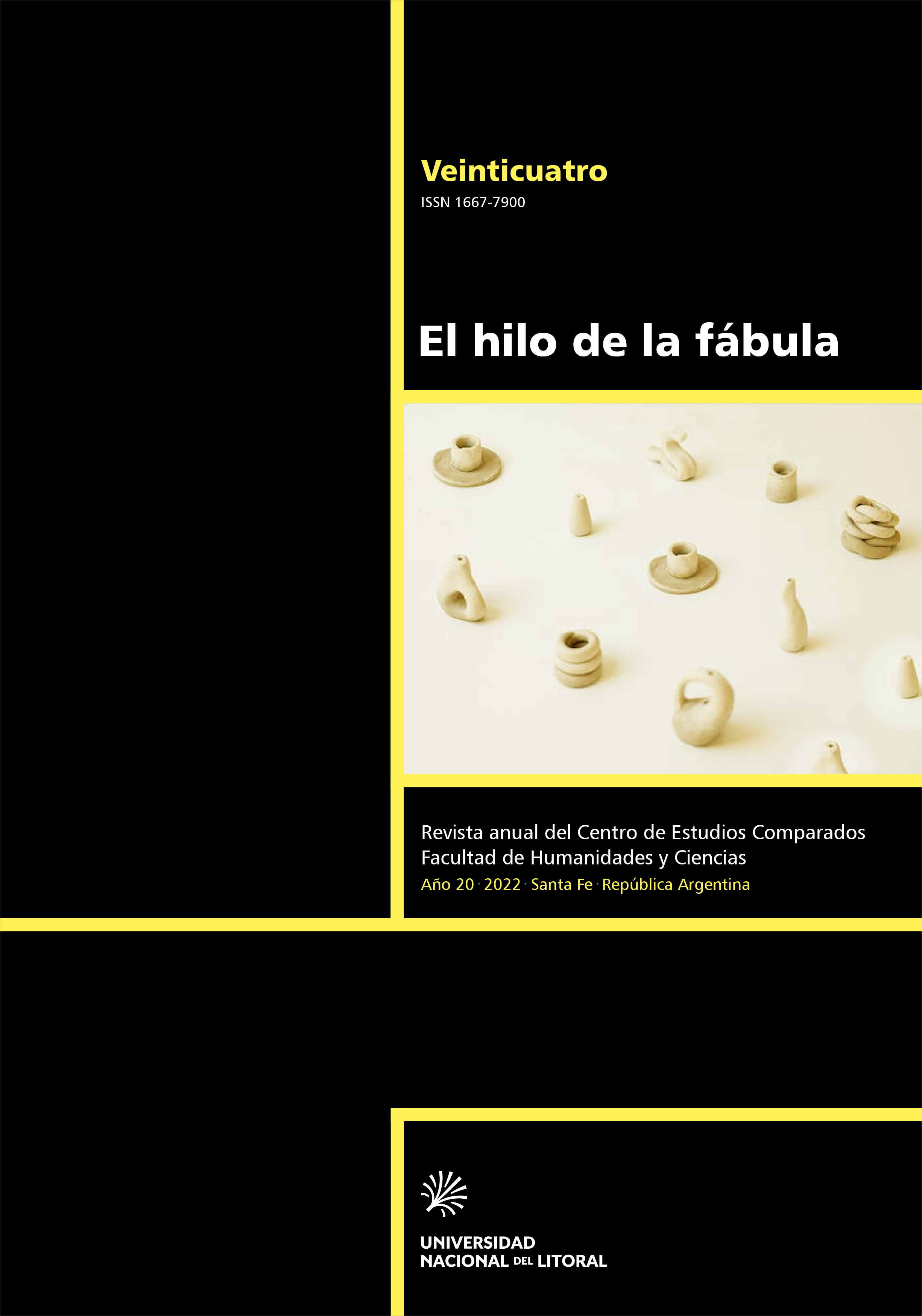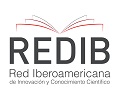Dando vida a los clásicos: la utopía de traducir Aristófanes
DOI:
https://doi.org/10.14409/hf.20.24.e0022Palabras clave:
Aristófanes, Comedia Antigua, traducciónResumen
En este trabajo nos proponemos reflexionar sobre cuestiones generales de la traducción de textos clásicos antiguos, en particular de teatro griego –dada su naturaleza de libretos pensados para la escena–. A su vez, a partir de nuestra experiencia como traductores de Aristófanes, así como de los testimonios de otros traductores del mismo autor, nos ocupamos de puntualizar una serie de dificultades –no exhaustivas–, a la hora de trasponer la lengua aristofánica al español, entre otras, los juegos lingüísticos, los nombres parlantes, el léxico obsceno, los coloquialismos, las menciones a los hechos y personajes de su tiempo.
Citas
Andrisano, Angela (2014). Appunti per una traduzione delle Trachinie: Deianira ed Eracle, personaggi complementar. En Belardinelli, A. M. (ed.) Dell’arte del tradurre: problemi e riflessioni, Science dell’Antichità 20.3, Roma, 7-28.
Arnold, Matthew (1914). On Translating Homer (including F. W. Newman’s reply). En Essays by Matthew Arnold. Oxford: Oxford University Press, 245–424.
Arnott, Peter (1962). Greek Scenic Conventions in the Fifth Century. Oxford: Clarendon Press.
Arnott, Peter (1991). Public and Performance in the Greek Theatre. London: Routledge.
Bassnett, Susan (1991). Translating for the Theatre: The Case against Performability. En Traduction, terminologie, rédaction 4.1: 99-111.
Bassnett, Susan (1998). Still Trapped in the Labyrinth: Further Reflections on Translation and Theatre. En Bassnett, S. y Lefevere, A. (eds.). Constructing Cultures: Essays on Literary Translations. Clevedon: Crowmwell Press, 90-108.
Bassnett, Susan (2011). Prologue. En Parker, J. & Mathews, T. (eds.). Tradition, Translation, Trauma: The Classic and the Modern. Classical Presences. Oxford: Oxford University Press, 1-9.
Bassnett, Susan y Trivedi, Harish (1999). Introduction: of Colonies, Cannibals and Vernaculars. En Bassnett, S. y Trivedi, H. (eds.). Post-colonial Trasnlation. Theory and Practice. London: Routledge. 1-18.
Beltrametti, Anna (2019). Aristofane, nomi in commedia (Parte II). Il destino nel nome: Nomi ed enigmi (non troppo oscuri), due casi di studio: Pistetero e Prassagora, Uccelli e Donne in assemblea. En Il Nome nel testo Rivista internazionale di onomastica letteraria 21, 135-142.
Berman, Antoine (1992). The Experience of the Foreign. Albany (NY): SUNY Press (Edición original 1984).
Bermann, Sandra y Porter, Catherine (eds.) (2014). A Companion to Translation Studies, Oxford: Wiley Blackwell.
Beta, Simone (2021). Beta dire quasi le stesse cose (che ha detto Aristofane). Come ho tradotto la Lisistrata. En Dionysus ex machina 12, 163-169.
Bettini, Maurizio (2012). Vertere. Un’antropologia della traduzione nella cultura antica. Torino: Giulio Einaudi editore.
Boegehold, Alan (1999). When a Gesture was Expected. Princeton: Princeton University Press.
Bremmer, Jan y Roodenberg, Hans (eds.) (1991). A Cultural History of Gesture: From Antiquity to the Present Day. Cambridge: Polity Press.
Capponi, Matteo (2021). Parole et geste dans la tragédie grecque. À la lumière des trois « Électre ». Neuchâtel: Éditions Alphil.
Capra, Andrea (2012). Tradurre Aristofane. En Peron, G. (ed.) Premio ‘Città di Monselice’ per la traduzione letteraria e scientifica 38-40. Padova: Il Poligrafo, 335-50.
Cassin, Barbara (2016). Éloge de la traduction. Compliquer l’universel. Paris: Fayard.
Catoni, Luisa (2008). Schemata. Comunicazione non verbale nella Grecia antica. Torino: Bollati Boringhieri.
Cavallero, Pablo; Frenkel, Diana; Fernández, Claudia; Coscolla, María José & Buzón, Rodolfo (2008). Nubes de Aristófanes. Edición bilingüe con Introducción, notas y apéndice. Buenos Aires: Editorial de la Facultad de Filosofía y Letras.
Chiaro, Delia (2010). Translation and Humour, Humour and Translation. En Chiaro, D. (ed.). Translation, Humour and Literature. London: Continuum, 1-29.
Condello, Federico (2014). Tragedia e ‘traduttese’. Questione d’esegesi, non di stile. En Belardinelli, A. M. (ed.). Dell’arte del tradurre: problemi e riflessioni, Scienze dell’Antichità 20.3, 29-46.
Condello, Federico y Pieri, Bruna (2011). Adnumerare et adpendere. Traduttori filologi, traditori fedeli? En Condello, F. & Pieri, B. (eds.) Note di traduttore. Sofocle, Euripide, Aristofane, Tucidide, Plauto, Catullo, Virgilio, Nonno. Bologna: Pàtron, 7-28.
Condello, Federico y Pieri, Bruna (2013). ‘Note a piede di anfiteatro’: la traduzione deo drammi antichi in una esperienza di laboratorio. En Dionysus ex machina 4, 553-603.
Cremoux, Anne de (2013). Pratiques de l’interpretation, pratique de la traduction: le cas de la Comédie Ancienne et l’exemple des ‘noms parlants. En Methodos. Savoirs et textes 13, http://methodos.revues.org/2984
Dale, Amy Marjorie (1969). Seen and Unseen on the Greek Stage. En Collected Papers. Cambridge: Cambridge University Press (versión original 1956).
Denniston, John, D. (1927). Technical Terms in Aristophanes. En The Classical Quarterly 21, 113-121.
Eco, Umberto (2013). Decir casi lo mismo. Buenos Aires: Sudamericana (Edición original 2002).
Eissen, Ariane y Gondicas, Myrto (2014). Eschyle et Euripide entre tragédie et comédie: polyphonie et interprétation dans quelques traductions récentes des Grenouilles d’Aristophane. En Olson, D. (ed.). Ancient Comedy and Reception. Essays in Honor of Jeffrey Henderson. Berlin: De Gruyter, 1022-1039.
Ewan, Michael (2010). Translating Aristophanes into English. En Chiaro, D. (ed.). Translation, Humour and Literature. London: Continuum, 77-90.
Fernández, Claudia N. (2008) Aristófanes: Lisístrata. Introducción, traducción y notas de Claudia N. Fernández. Barcelona: Editorial Losada.
Fernández, Claudia N. (2009) Aristófanes: Las asambleístas. Introducción, traducción y notas de Claudia N. Fernández. Barcelona: Editorial Losada.
Fernández, Claudia N. (2011) Aristófanes: Pluto. Introducción, traducción y notas de Claudia N. Fernández. Barcelona: Editorial Losada.
Fernández, Claudia N. (2013) Aristófanes: Paz. Introducción, traducción y notas de Claudia N. Fernández. Barcelona: Editorial Losada.
Fernández, Claudia N. (2008). Clasicismos. En Amícola, J. y De Diego, J.L. (eds.). Conceptos críticos de la teoría literaria del siglo XX. La Plata: Editorial Al Margen, 23-31.
Fernández, Claudia N. (2012). Las redes del humor en la comedia de Aristófanes. En César Pompeu, A. M, de Araújo, O. L. y Brose Pire, R. (eds.). O riso no Mundo Antigo. Fortaleza: Universidad Federal de Ceará, 27-44.
Fernández, Claudia N. (2016). Lisístrata, la estratega. En: Gastaldi, Viviana, Fernández, Claudia y & De Santis, Guillermo (eds.). Imaginarios de la integración y marginalidad en el drama ático. Bahía Blanca: Universidad Nacional del Sur, 99-129.
Frenkel, Diana, Coscolla, María José, Cavallero, Pablo, Fernández, Claudia, Fernández, Patricia, Rivas, Ezequiel & Schwarz, Silvina (2011). Ranas de Aristófanes. Edición bilingüe con Introducción y notas. Buenos Aires: Editorial de la Facultad de Filosofía y Letras.
Ghiron-Bistagne, Paul (1984). La traduction des textes dramatiques de l’Antiquité. En Revue des Études Grecques 97.460, 242-46.
Goldhill, Simon (1991). The Poet’s Voice: Essays on Poetics and Greek Literature. Cambridge: Cambridge University Press.
Hall, Edith y Wrigley, Amanda (eds.) (2007). Aristophanes in Performance 421 BC-AD2007. Peace, Birds and Frogs. London: Legenda.
Hardwick, Lorna (2008). Translated Classics around the Millennium: Vibrant Hybrids or Shattered Icons. En Lianeri, A. y Zajko, V. (eds.). Translation and the Classic. Identity as Change in the History of Culture. Oxford: Oxford University Press, 341-66.
Harrop, Stephe & Wiles, David (2008). “Poetic Language and Corporeality in Translations of Greek Tragedy”. En New Theatre Quarterly 24, 51-64.
Henderson, Jeffrey (1993). Translating Aristophanes for Performance. En Slater, N.W. y Zimmermann, B. (eds.). Intertextualität in der griechisch-römischen Komödie, Stturgat: M & P, 81-91.
Jakobson, Roman (1959). On Linguistic Aspects of Translation. En Brower R. (ed.). On Translation. Cambridge (MA): Harvard University Press, 232-39.
Kanavou, Nikoletta (2011). Aristophanes' Comedy of Names: a Study of Speaking Names in Aristophanes. Berlin: Walter de Gruyter.
Kanellakis, Dimitrios (2022). Translating Aristophanes’ Puns. En Greece & Rome 69(2), 238–253.
Kermode, Frank (1983). The Classic: Literary Images of Permanence and Change. Cambridge (MA): Harvard University Press.
Kidd, Stephen (2014). Nonsense and Meaning in Comedy. Cambridge: Cambridge University Press.
Lefevere, André (1998). Translation Practice(s) and the Circulation of Cultural Capital: Some Aeneids in English. En Bassnett, Susan y Lefevere, André (eds.). Constructing Cultures: Essays on Literary Translations. Clevedon: Crowmwell Press, 41-56.
Ley, Graham (2013). Rehearsing Aristophanes”. En Harrison, G. y Liapis, V. (eds.). Performance of Greek & Roman Theatre. Leiden: Brill, 291-308.
Ley, Graham (2014). Cultural Politics and Aesthetic Debate in Two Modern Versions of Aristophanes’ Frogs. En Olson, D. (ed.). Ancient Comedy and Reception. Essays in Honor of Jeffrey Henderson. Berlin: De Gruyter, 871-886.
Lewis, David M. (1955). Notes on Attic Inscriptions (II) XXIII: Who was Lysistrata? En Annual of the British School at Athens 1, London, 1-12.
Lianeri, Alexandra y Zajko, Vanda (2008). Introduction: Still Being Read after so Many Years: Rethinking the Classic trough Translation. En Lianeri, A. y Zajko V. (eds.). Translation and the Classic. Identity as Change in the History of Culture, Oxford: Oxford University Press, 1-23.
Maingueneau, Dominique (2005). Pragmatique pour le discours littéraire. Paris: Armand Colin.
Mastromarco, Giuseppe (1991). Aristofane e il problema del tradurre. En Nicosia, S. (ed.). La traduzione dei texti classici. Teoria, prassi, storia. Napoli: D’Auria, 103-26.
Neri, Camillo y Tosi, Renzo (eds.) (2009). Hermeneuein. Tradurre il greco. Bologna: Pàtron.
Parker, Laetitia (1997). The Songs of Aristophanes. Oxford: Oxford University Press.
Revermann, Martin (2006). Comic Business: Theatricality, Dramatic Technique, and Performance Contexts of Aristophanic Comedy. Oxford: Oxford University Press.
Ribeiro Barbosa, Tereza, Palma, Anna y Chiarini, Ana Maria (eds.) (2017). Teatro e traduçao de teatro, vol. 1, Belo Horizonte: Relicário Ediçôes.
Roberts, Deborah (2008). Translation and the ‘Surreptitious Classic’: Obscenity and Translatability. En Lianeri, A. & Zajko, V. (eds.). Translation and the Classic. Identity as Change in the History of Culture. Oxford: Oxford University Press, 278-311.
Robson, James (2006). Humour, Obscenity and Aristophanes. Tübingen: Gunter Narr Verlag.
Robson, James (2008). “Lost in Translation? The Problem of (Aristophanic) Humour. En Hardwick, L. y Stray, C. (eds.). A Companion to Classical Receptions. Oxford: Oxford University Press, 168-82.
Robson, James (2012). Transposing Aristophanes: the theory and practice of translating Aristophanic lyric. En Greece & Rome 59(2), 214–244.
Rossi, Luigi E. (1989). Livelli di lengua, gestualità, rapporti di spazio e situazione dramatica sulla scena attica. En de Finis, L. (ed.). Scene e spettacolo nell’antichità. Atti del Convegno Internazionale di Studio, Trento 28-30 Marzo 1988. Firenze: L.S. Olschki, 63-78.
Sapiro, Gisele (2014). The Sociology of Translation. En Bermann, S. y Porter, C. (eds.). A Companion to Translation Studies. Oxford: Wiley Blackwell, 80-94.
Schleiermacher, Friedrich (1992). On the Different Methods of Translating. En Shulte, R y Biguenet, J. (eds.). Theories of Translation. Chicago: University of Chicago Press, 36-54 (Versión original 1813).
Silk, Michael (1980). Aristophanes as a Lyric Poet. En Henderson, J. (ed.). Aristophanes: Esssays in Interpretation, Cambridge: Cambridge University Press.
Silk, Michael (2007). Translating/Transposing Aristophanes. En Hall, E. y Wrigley, A. (eds). Aristophanes in Performance 421 BC-AD 2007. Peace, Birds, and Frogs. London, Leganda, 287-308.
Sommerstein, Alan (1973). On Translating Aristophanes: Ends and Means. En Greece & Rome 20, 140-54.
Sommerstein, Alan (2009). Lysistrata the Warrior. En Talking about Laughter and Other Studies in Greek Comedy. Oxford: Oxford University Press, 223-36.
Steiner, George (1975). After Babel: Aspects of Language and Translation. Oxford: Oxford University Press.
Swallow, Peter, y Hall, Edith (eds.) (2020). Aristophanic Humour. Theory and Practice. London: Bloomsbury.
Taplin, Oliver (1977). Did Greek Dramatists Write Stage Instructions? En Proceedings of the Cambridge Philological Society 23, 121-32.
Treu, Martina (2019). Aristofane, nomi in commedia (Parte I). Il destino nel nome: Acarnesi, Cavalieri e Nuvole. En Il Nome nel testo Rivista internazionale di onomastica letteraria 21, 125-134.
Venuti, Lawrence (1995). The Translator's Invisibility: A History of Translation. London: Routledge.
Venuti, Lawrence (2008). Translation, Interpretation, Canon Formation. En Lianeri, A. y Zajko, V. (eds.). Translation and the Classic. Identity as Change in the History of Culture. Oxford: Oxford University Press, 27-51.
Vermeer, Hans (1989). Skopos and Commission in Translation Theory. En Chesterman, A. (ed.). Readings in Translation Theory (Helsinki: Oy Finn Lectura Ab.
Walsh, Phillip (2016a). The Verbal and the Visual: Aristophanes’ Nineteenth-Century English Translators”. En Phillip, W. (ed.). Brill’s Companion to the Reception of Aristophanes. Leiden: Brill, 217-239.
Walsh, Phillip (ed.) (2016b). Brill’s Companion to the Reception of Aristophanes. Leiden: Brill
Walton, J. Michael (2006). Found in Translation: Greek Drama in English. Cambridge, Cambridge University Press.
Willi, Andreas (2003). The Languages of Aristophanes. Aspects of Linguistic Variation in Classical Attic Greek. Oxford: Oxford University Press.
Wilson, Patricia (2005). Introducción. En Ricoeur, P. Sobre la traducción. Buenos Aires: Paidós.
Wyles, Rosie (2016). Aristophanes and the French Translations of Anne Dacier. En Phillip, W. (ed.). Brill’s Companion to the Reception of Aristophanes. Leiden: Brill, 195-216.
Publicado
Cómo citar
Número
Sección
Licencia
Derechos de autor 2022 El Hilo de la Fabula

Esta obra está bajo una licencia internacional Creative Commons Atribución-NoComercial-CompartirIgual 4.0.
















